#Perfectionism
Text
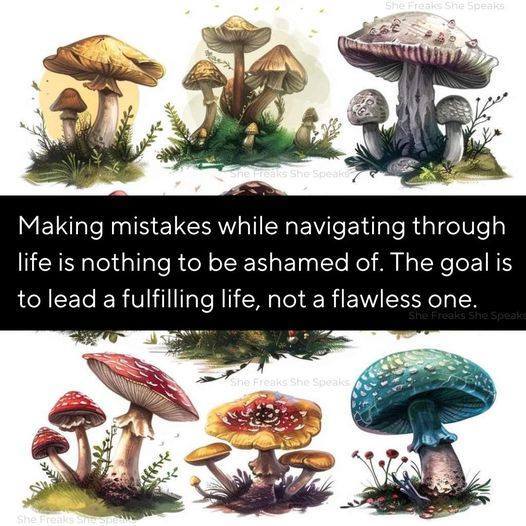
#perfectionism#making mistakes#you are not your mistakes#self compassion and accountability can and must coexist#self compassion#self forgiveness#self respect#you are not your past#growth#growth mindset#resilience#you are enough#you are worthy
44 notes
·
View notes
Text
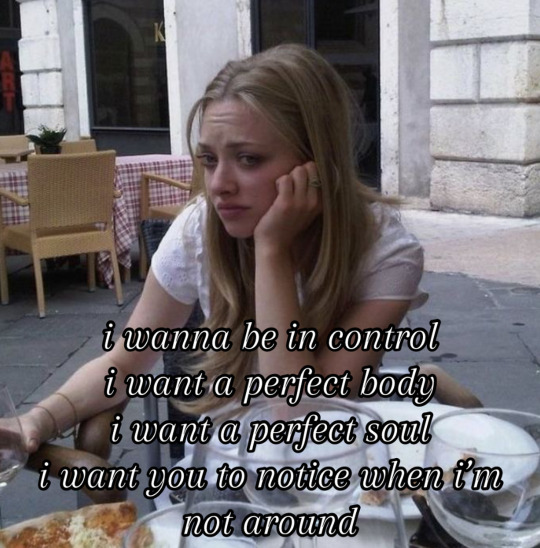
#radiohead#girlblogger#girlhood#coquette#perfectionism#black swan#nina sayers#femcel#it girl#lana del rey#girl interrupted syndrome#ballerina#lana del ray aka lizzy grant#girlblogging#girlbloggeraesthetic#this is a girlblog#gaslight gatekeep girlblog#girlblog#girl blogger#girl blogging#coquette dollette#dark coquette#model off duty#balletcore#satin and lace#perfection#waif chic#ballet core#ballet chic#model aesthetic
14K notes
·
View notes
Text
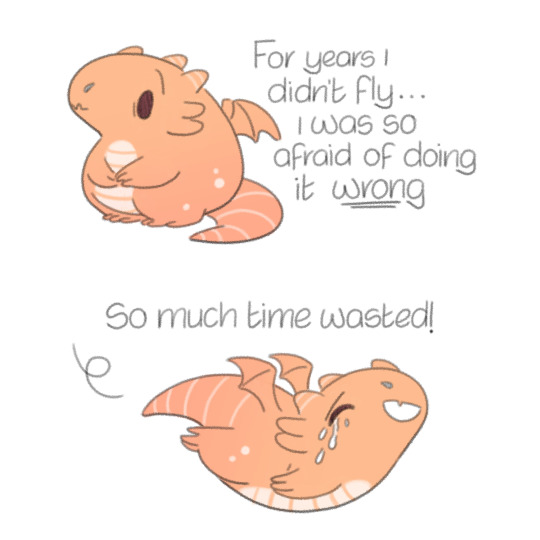
4K notes
·
View notes
Text
Your exhaustion is not shameful. It is not a moral failure to be physically, mentally or emotionally tired. It is okay to be overwhelmed. You're not inferior to anyone just because it's hard for you to keep up with a fast-paced life.
35K notes
·
View notes
Text
My life is a constant cycle between "I need to rest before I burn out" and "I'm wasting my potential, I should work harder"
#moth monologue#mental health#psychology#perfectionism#gifted kid burnout#gifted kid#university#college#studyblr#add#adhd#actually adhd#adhd inattentive#burnout
6K notes
·
View notes
Text
i really dislike it when people don’t understand perfectionism.
like, it isn’t always “person who has tons of motivation and spends a ton of time making this thing *just* right”
wayyyyyy more often than not it’s:
”I know that if I try to make this thing, it won’t be perfect, so I simply won’t try.”
which definitely sounds bad, right? but when you realize that it doesn’t just apply to voluntarily making art, then you realize how perfectionism is not at all a good thing in any context.
“i know that if I try to work on this assignment right now, it won’t be good enough, so i’ll wait until the last possible moment so that I have something forcing me to do it.”
”i know that I should start going to the gym, but I won’t see any improvement right away, so I just won’t.”
”i know that i should brush my teeth tonight, but that won’t be good enough to undo the fact that i haven’t brushed them 4 days in a row, so I just won’t.”
perfectionism isn’t the uncontrollable impulse to make things “just right”. (although it can occasionally manifest as this.)
perfectionism is the absolute, psychological inability to accept the concepts of “good enough” and “better than nothing”.
#perfectionism#perfection#art#writing#making#making art#creative#creative process#lifestyle#habits#good habits#living with mental illness#mental illness#mental disorder#adhd#psychology
21K notes
·
View notes
Text
It just breaks my heart so much when I see someone burning themselves out to try to become perfect. Nothing in this world has ever been perfect, nor will it ever be. If things could ever be perfect, evolution would have just stopped at some point, don't you think?
#burnout#mental health#self worth#healing#recovery#perfectionism#recovering perfectionist#evolution#self growth#self improvement#mental wellbeing#self healing#mental wellness#self care#qeued post
2K notes
·
View notes
Text
Writing Tips - Beating Perfectionism
1. Recognising writing perfectionism. It’s not usually as literal as “This isn’t 100% perfect and so it is the worst thing ever”, in my experience it usually sneaks up more subtly. Things like where you should probably be continuing on but if you don’t figure out how to word this paragraph better it’s just going to bug you the whole time, or where you’re growing demotivated because you don’t know how to describe the scene 100% exactly as you can imagine it in your head, or things along those lines where your desire to be exact can get in the way of progression. In isolated scenarios this is natural, but if it’s regularly and notably impacting your progress then there’s a more pressing issue
2. Write now, edit later. Easier said than done, which always infuriated me until I worked out how it translates into practice; you need to recognise what the purpose of this stage of the writing process is and when editing will hinder you more than help you. Anything up to and including your first draft is purely done for structural and creative purposes, and trying to impose perfection on a creative process will naturally stifle said creativity. Creativity demands the freedom of imperfection
3. Perfection is stagnant. We all know that we have to give our characters flaws and challenges to overcome since, otherwise, there’s no room for growth or conflict or plot, and it ends up being boring and predictable at best - and it’s just the same as your writing. Say you wrote the absolute perfect book; the perfect plot, the perfect characters, the perfect arcs, the perfect ending, etc etc. It’s an overnight bestseller and you’re discussed as a literary great for all time. Everyone, even those outside of your target demographic, call it the perfect book. Not only would that first require you to turn the perfect book into something objective, which is impossible, but it would also mean that you would either never write again, because you can never do better than your perfect book, or you’ll always write the exact same thing in the exact same way to ensure constant perfection. It’s repetitive, it’s boring, and all in all it’s just fearful behaviour meant to protect you from criticism that you aren’t used to, rather than allowing yourself to get acclimated to less than purely positive feedback
4. Faulty comparisons. Comparing your writing to that of a published author’s is great from an analytical perspective, but it can easily just become a case of “Their work is so much better, mine sucks, I’ll never be as good as them or as good as any ‘real’ writer”. You need to remember that you’re comparing a completely finished draft, which likely underwent at least three major edits and could have even had upwards of ten, to wherever it is you’re at. A surprising number of people compare their *first* draft to a finished product, which is insanity when you think of it that way; it seems so obvious from this perspective why your first attempt isn’t as good as their tenth. You also end up comparing your ability to describe the images in your head to their ability to craft a new image in your head; I guarantee you that the image the author came up with isn’t the one their readers have, and they’re kicking themselves for not being able to get it exactly as they themselves imagine it. Only the author knows what image they’re working off of; the readers don’t, and they can imagine their own variation which is just as amazing
5. Up close and too personal. Expanding on the last point, just in general it’s harder to describe something in coherent words than it is to process it when someone else prompts you to do so. You end up frustrated and going over it a gazillion times, even to the point where words don’t even look like words anymore. You’ve got this perfect vision of how the whole story is supposed to go, and when you very understandably can’t flawlessly translate every single minute detail to your satisfaction, it’s demotivating. You’re emotionally attached to this perfect version that can’t ever be fully articulated through any other medium. But on the other hand, when consuming other media that you didn’t have a hand in creating, you’re viewing it with perfectly fresh eyes; you have no ‘perfect ideal’ of how everything is supposed to look and feel and be, so the images the final product conjures up become that idealised version - its no wonder why it always feels like every writer except you can pull off their visions when your writing is the only one you have such rigorous preconceived notions of
6. That’s entertainment. Of course writing can be stressful and draining and frustrating and all other sorts of nasty things, but if overall you can’t say that you ultimately enjoy it, you’re not writing for the right reasons. You’ll never take true pride in your work if it only brings you misery. Take a step back, figure out what you can do to make things more fun for you - or at least less like a chore - and work from there
7. Write for yourself. One of the things that most gets to me when writing is “If this was found and read by someone I know, how would that feel?”, which has lead me on multiple occasions to backtrack and try to be less cringe or less weird or less preachy or whatever else. It’s harder to share your work with people you know whose opinions you care about and whose impressions of you have the potential of shifting based on this - sharing it to strangers whose opinions ultimately don’t matter and who you’ll never have to interact with again is somehow a lot less scary because their judgements won’t stick. But allowing the imaginary opinions of others to dictate not even your finished project, but your unmoderated creative process in general? Nobody is going to see this without your say so; this is not the time to be fussing over how others may perceive your writing. The only opinion that matters at this stage is your own
8. Redirection. Instead of focusing on quality, focusing on quantity has helped me to improve my perfectionism issues; it doesn’t matter if I write twenty paragraphs of complete BS so long as I’ve written twenty paragraphs or something that may or may not be useful later. I can still let myself feel accomplished regardless of quality, and if I later have to throw out whole chapters, so be it
9. That’s a problem for future me. A lot of people have no idea how to edit, or what to look for when they do so, so having a clear idea of what you want to edit by the time the editing session comes around is gonna be a game-changer once you’re supposed to be editing. Save the clear work for when you’re allocating time for it and you’ll have a much easier and more focused start to the editing process. It’ll be more motivating than staring blankly at the intimidating word count, at least
10. The application of applications. If all else fails and you’re still going back to edit what you’ve just wrote in some struggle for the perfect writing, there are apps and websites that you can use that physically prevent you from editing your work until you’re done with it. If nothing else, maybe it can help train you away from major edits as you go
#perfectionism#perfection#writing#writers#writeblr#bookblr#book#writers on tumblr#writerscommunity#writers of tumblr#writer#my writing#how to write#on writing#creative writing#write#writing tips#writblr#female writers#queer writers#writer things#writer stuff#writing is hard#writing advice#writing life#writer problems#writerscreed#writersnetwork#writerblr#writersociety
836 notes
·
View notes
Text
I’m thinking about perfectionism again, specifically with respect to how it can skew your opinion of success and failure.
There’s this concept that comes up a lot when you read about issues like perfectionism: all-or-nothing thinking. It’s a trap that’s easy to fall into.
If you’re a fic writer falling into this trap, you might feel like you’re an absolute failure if your fic isn’t a 100% accurate depiction of the scene you see in your head with flawless grammar and zero typos. That is a, quite literally, impossible standard to meet and as a result of never meeting it, you probably feel one or more of the following:
lack of motivation
certainty that there’s no point in even trying
self-hatred or some other form of intense dissatisfaction with yourself and/or your skills
This is a completely logical way to feel in that mindset, by the way. Your standard for success is so high that you’re constantly a failure. If your standard for success is impossible to meet, then there is no point in trying. If there’s no point in trying, how could you possibly feel motivated?
In order to move away from those feelings, you need to move away from that all-or-nothing, black & white mindset.
One way to do this is by figuring out a new standard for success that actually can be achieved. For example, give yourself permission to have occasional typos in your stories. Gaiman’s Law states that an author will always find a typo the first time they open their published book. If even Neil himself has resigned himself to this fate, then hopefully you can too. If you managed to write your story then that’s a success and finding a typo after you’re done doesn’t turn that success into a failure.
Another thing that’s helped me is to think of every failure or mistake or dissatisfying result as a learning opportunity. If I’m not able to do something now, that doesn’t mean I won’t be able to do it at some point in the future. I just need to keep trying. Practice makes better. Practice also helps you figure out the things that are easy for you and the bits that are hard and where you might need some help - either from a fellow fan or from another kind of resource.
I think part of the reason why people can get so anxious about their fanworks is because we care so much about them. We love the characters. We love the world. We want to do them justice in our writing, and we want other fans to love our creations too.
It’s important to remember that all of us love imperfect things all the time. It’s not perfection that makes a thing lovable. It’s the heart that’s put into it.
There’s a lot of fear behind perfectionism. Fear of being caught doing something wrong. Fear of being shamed for a mistake. Fear that imperfection makes us unworthy or unlovable. Fear that a single flaw will ruin an entire work. Fear of failure.
If you want to be able to move through that fear, you need to be able to reduce it somehow. The most effective way that I’ve found is to stop writing with the goal of posting something online. Write for the sake of writing, without the pressure of showing it to someone else. That might help you to get out a first draft (or second or third) without that worry about being judged and found wanting.
If you’re not ready for positive self-talk or reframing the internal narrative (I get it. Been there.) then allowing yourself to be less than perfect in a place where no one else can see you might be a good first step.
And just because I think it’s important that you hear it from time to time: you are a wonderful, creative, amazing human being - mistakes included.
673 notes
·
View notes
Text
WHY IS WRITING IS SO FUCKING HARD?
Ten types of fuckery that stop you from writing the thing:
1. Imposter syndrome
You think you're not good enough or everyone else is better than you and you're just winging it AKA ye olde imposter syndrome bullshit. Yeah nah you're fine. No really, you're exactly where you need to be right now, and you'll keep getting better and better so long as you don't stop. Chances are, if you're filled with doubt about your abilities it means you've actually improved to the point where you can really start to understand what makes good writing. It means you know where you wanna end up and goshdarn it you're gonna get there.
Read this: 4 tips to kick imposter syndrome in the face and also genitals
And also this: How to silence the inner critic
2. Fear of rejection and/or failure
Yeah, us too. It fuckin sucks. BUT. Not all rejections are equal. And rejection is a necessary part of the process. Sometimes it takes a rejection to realise that a story isn't ready. Sometimes a rejection is entirely subjective and has ZERO reflection on the quality of your work. But shying away from the very idea of possibly maybe hypothetically getting rejected is only going to hold you back from even trying. And knowing why you got rejected and how to learn from it is one of the most valuable writing skills.
Read this: The different types of rejection (and how to deal with 'em)
Then read this: How to cope with rejection
And also this: Writing lessons from Groundhog Day
3. Not enough planning / too much planning
Leaping into a new story with nothing but a glimmer of an idea is exciting as heck (and can sometimes be a great way to begin) but at some point you're gonna need some sort of outline or plan to keep you on track. HOWEVER. Planning your story to within an inch of its life can also sometimes be a hindrance - leaving you stuck in the hypothetical stage of the process where your story doesn't quite exist yet (and therefore avoiding the prospect of it sucking). The sweet spot is in the middle. Having just enough of a plan to know where tf you're going, but enough freedom and flexibility to let the story lead the way...
Read this: Planning vs pantsing
Then read this: Five plotting techniques
And also this: The perils of overplanning
4. Your WIP just isn't working
Sometimes things just fall flat. Sometimes you work on the same story for yeeeeears and then it just kinda... dies. Sometimes you have the best plans (see above) and the best intentions and things still don't work out. Sometimes it's just time to move on. And sometimes it's not! Sometimes a story can be revived, fixed or changed. Sometimes you just need time. Sometimes YOU'RE the one that's changed and this isn't the story you need to be writing right now. Many variables. Muchly personal. Read the things below for more advice cos this is a big question:
Read this: What to do when your WIP isn't working
And also this: Give it space - how to grow a story in your head
Or how about this? Editing 101
5. You keep deprioritising it
Ah the irony of writing being the thing you love/want to do most of all AND YET the thing you procrastinate over and avoid and shove to the very bottom of your to-do list all the freakin' time. Maybe it's the comodification of art destroying our freedom to create without pressure. Maybe it's late capitalism sucking up all our available time and energy. Maybe it's a lack of self-belief subconsciously telling us our 'little hobby' doesn't really matter. Maybe it's maybelline. Whatever it is, you have the power to reclaim and revalue your writing. To say, "I'm a fucking writer, goddamnit!" and mean it. To ringfence your creative time so nothing and nobody gets to interrupt it. To do that thing you love.
Read this: Prioritise your writing
Read this: How to write in 30 second bursts
6. Shiny Thing Syndrome
You know that feeling when you're just getting stuck into a writing project and then — SQUIRREL! — you get distracted by another, better, more shiny writing project? Or maybe you're deep in the editing phase and your current WIP just isn't feeling very shiny at all and pretty much ANYTHING seems more exciting? Or you simply can't decide which of the many squirrelly writing ideas to actually start? You, fine writerperson, may be suffering from Shiny Thing Syndrome (STS). But fear not! There are a few ways to combat it, depending on the cause, and most of them involve embracing the squirrel-brain and injecting a bit of fun into your writing, like so:
Read this: Shiny thing syndrome - a writer's malady
Aaaand read this: Get excited about your writing again
And also this: Write like a kid
7. Perfectionism/self-sabotage
Look. Writing is scary as shit. What if someone READS it? What if they don't like it? What if they see into your soul and gain a deeper understanding of you through your words? Writing your truth, being vulnerable, smearing your heart juice all over the page? No thank you. But also, that's where the good shit is, so actually yes please. Just make sure you smear responsibly. And rest assured, even the most 'successful' and experienced writers ALSO feel like this sometimes, so you're in good company. It's just part of the art, bruh.
Read this: Why writing is scary (and why that's a good thing)
Read this: Beginning a story - what stops us starting?
And also this: Get out of your own way
8. The dreaded blank page
Oh godddd the blank page. It should be an exciting palimseset of possibility but is somehow also the most terrifying thing known to humankind. You wanna write something but where to start? HOW to start? You type that first line and immediately delete it. You watch the cursor blinking at you—taunting you—until you just give up and shut your laptop again. It's probably tied up with a bunch of things we've already covered so far: perfectionism, imposter syndrome, fear of failure, maybe a lack of planning or faith in your story or whatever. But it doesn't have to be this way. A blank page IS exciting and full of possibility. We just have to get over ourselves and learn to embrace the unknown...
Read this: Don't fear the blank page
And also this: The moaning method
9. Not enough time/energy/motivation/gnuuuughh
Dude, same x 1000. But you don't have to get up at 5am, do hot yoga, drink a kale smoothie and write a thousand words before sunrise to be a Proper Writer. You don't even have to write every day. But what you can do is hack your writing brain and figure out when, where, how, and why you write most effectively. Then tweak your schedule, your habits, and your attitude to ensure you're making the most of your time. Productivity is a big ol' lie but finding the secret to getting in your own personal writing zone is actual MAGIC.
Read this: Maximise your writing time
And also this: Get in the writing zone
And also unto this: The Writers' HQ Guide to Productivity
10. You're just fucken stuck
Got the writing morbs? In need of some literary sudafed? Stuck as a pig in a poke? Writing is a whole puzzle of a process—and to be honest that's what makes it so fun and exciting and addictive, because your writing brain is hardwired to both create AND solve the wordy puzzles within your story. Sometimes the answer is time. Sometimes it's a second opinion or a fresh eye. Sometimes a totally different approach or just a hefty kick up the bum. But whatever the problem, there IS a solution. You just gotta keep going and trust that you'll find it...
Read this: Troubleshoot your writing - why are you stuck?
And also this: Break through the writing blockage
And also also this: Write yourself into a pit (and then dig your way out again)
~~~~~~~~~~~~~~~
Alright, that's it for today. Now go write, you flithy animals.
(And if we missed anything, stick a question in our ask box or check out the rest of our shit here)
#writing#writing advice#writers of tumblr#writeblr#writing community#writers community#writing life#creative writing#national novel writing month#nanowrimo#nanowrimo 2022#imposter syndrome#perfectionism#writer's block#writers block#writer things#procrastination#productivity#writer problems#blank page#the blank page#WIP#pantser#editing#plotting
8K notes
·
View notes
Text
Become so good at your chosen field that people start thinking you're the Devil's prodigy
#dark academia#dark acadamia aesthetic#aesthetic#dark academism#books#quotes#dark acadamia quotes#perfection#perfectionism#this is just for motivation btw#remember to take care of yourself#stay hydrated#take breaks#light academia#chaotic academia#romanticism#academia#dark academia aesthetic#academic validation#study motivation
1K notes
·
View notes
Text
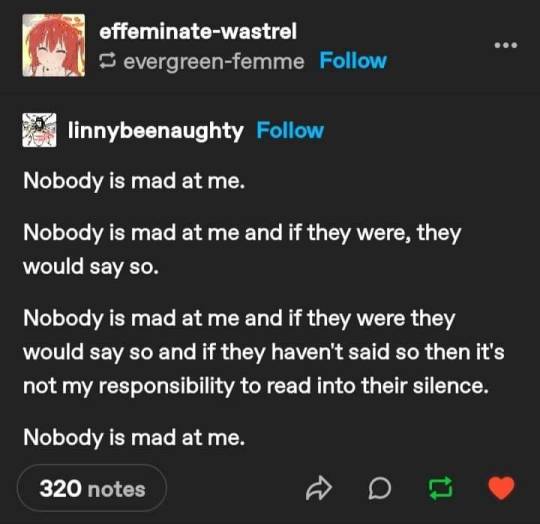
#rejection sensitive dysphoria#rejection sensitivity#social anxiety#masking#neurodivergent#emotional labor#mindfulness#affirmations#communication#interpersonal#relationships#self compassion#codependency#boundaries#people pleasing#fawning#perfectionism#coping skills#coping
3K notes
·
View notes
Photo
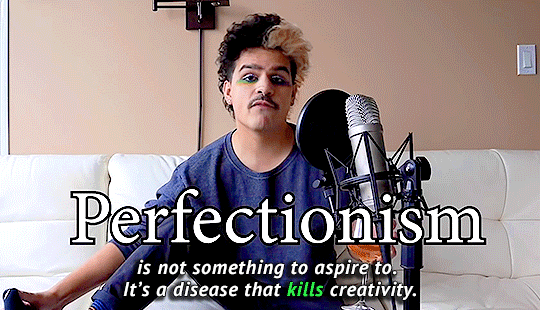
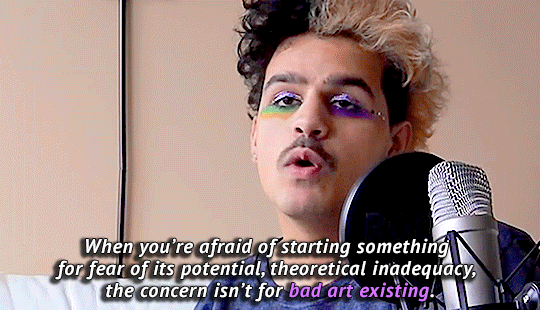
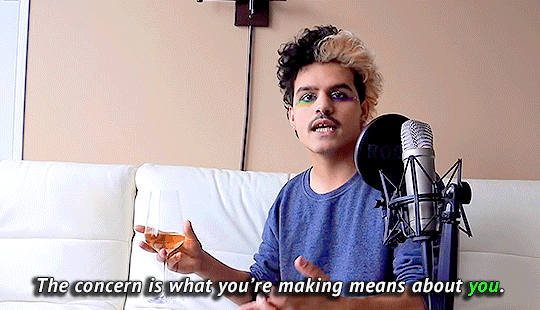

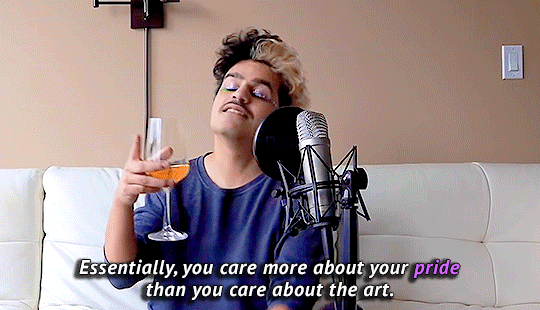
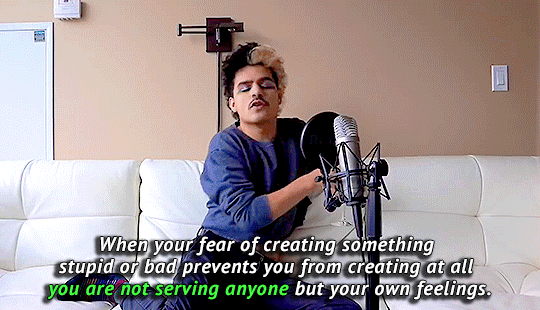
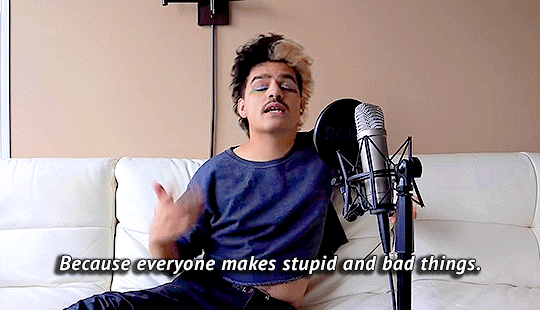
CJ The X on Perfectionism
7K notes
·
View notes
Text
writers. artists. knitters. crocheters (is that the term? I don’t crochet lol). painters. sketch artists. musicians. song writers. anyone who makes something, I’m talking to you.
perfection is a fool’s errand.
#knitblr#craftblr#writblr#writeblr#crochet#crochetblr#yarnblr#musician#music#musicblr#artblr#paintblr#writing#artists on tumblr#writers on tumblr#sketch#perfectionism#perfection#perfectionist issues#perfectionist#my posts
623 notes
·
View notes
Text
It's not fair to tolerate discomfort to make someone else comfortable. You're not less deserving of joy, rest and happiness than anyone else. You don't have to prove yourself worthy to have the most basic things in life, and I am sorry someone has made you feel like you should be perfect. You don't have to put up with so much only to prove you're not a burden on others. I hope soon you can let go of all this guilt and shame you have for simply existing. I hope soon you will feel more alive than ever.
7K notes
·
View notes
Text
Something helpful I’ve learned from a YT video:
The cure to perfectionism is developing your own personal standard, not desperately trying not to care what others think. Unhealthy perfectionism is when your own opinion of yourself doesn’t matter, it’s all about the standards others impose on you. Working on my own self-perception and determining what is acceptable for me in my own life has really been a game changer. Pausing whenever I make a mistake, slowing down my mind, and asking “what can I learn from this?” Or “is this fixable?” Or even, “did I actually do anything wrong?”
And most importantly, developing my own set of standards. The first question I should ask myself is “what do I think of that? Is this acceptable by my own standard? Am I honestly doing the best I can at the moment? Could I do better?”
Being gentle and firm with myself has also done wonders. Some days, I truly only have 50% of myself to give. But if I gave all 50%, then I gave it my all. Being realistic about what’s acceptable to me, how I can improve, and how much can I give without negative consequences is making a big difference in being a recovering perfectionist.
As a side note, perfectionism isn’t bad in and of itself. We should strive for perfect. But we will inevitably fall short, and the negative emotions we feel as a result of that is what needs to be addressed. Unhealthy perfectionism actually hinders you because if you can’t do it perfectly, then you won’t even attempt it (which is what was happening to me). Failure is bound to happen, but it’s how you learn from it and improve.
Here is the video I watched if you’re curious!
538 notes
·
View notes